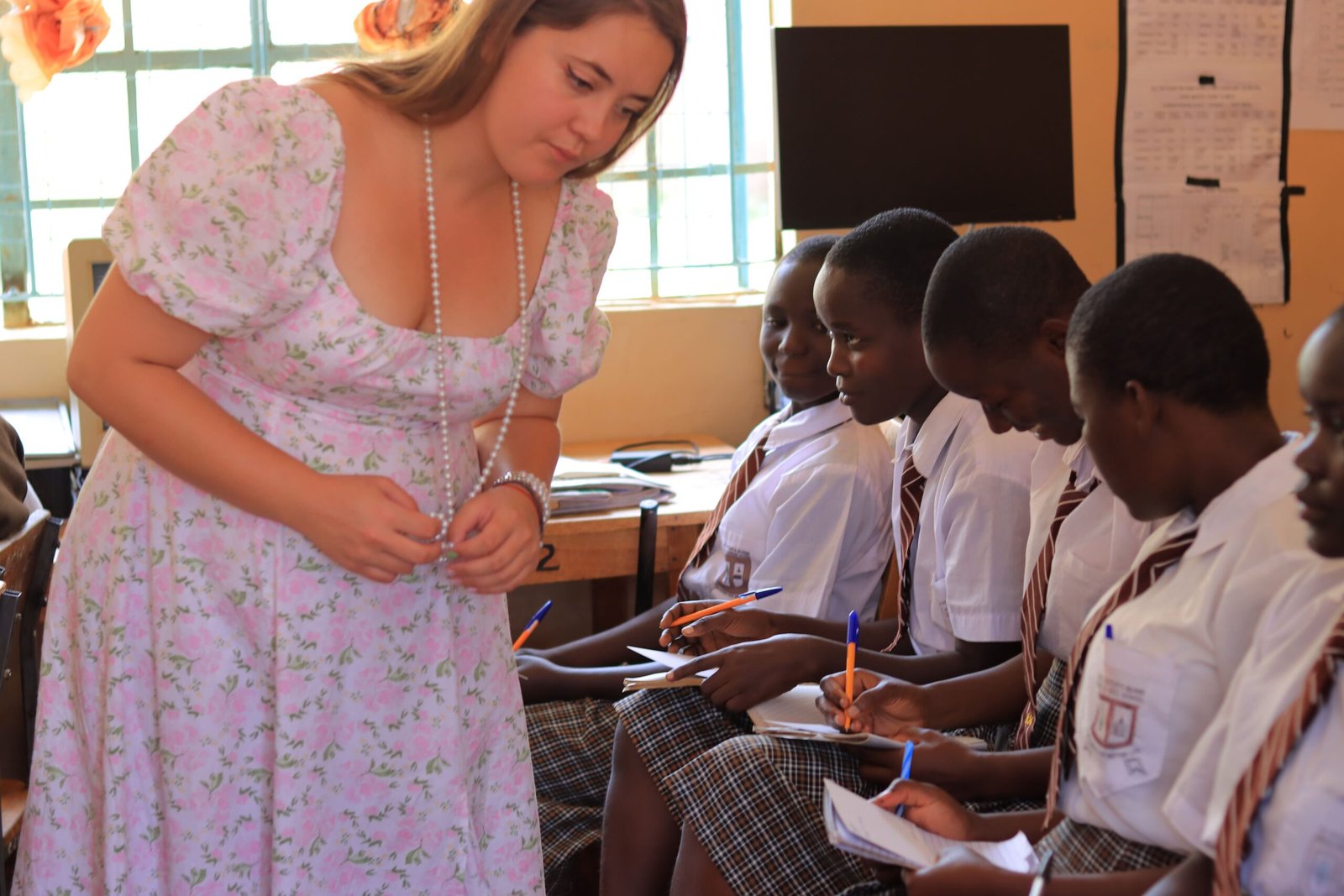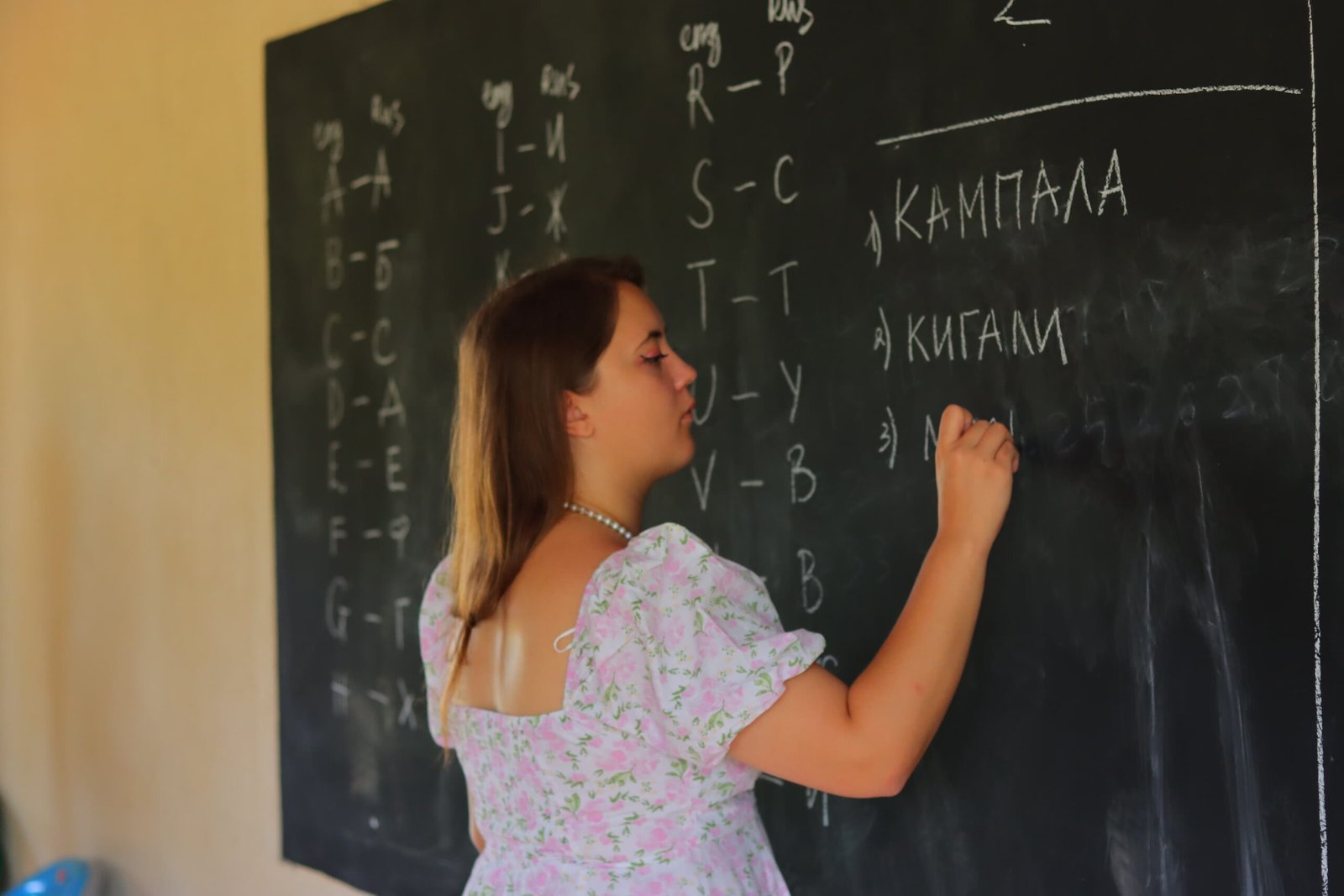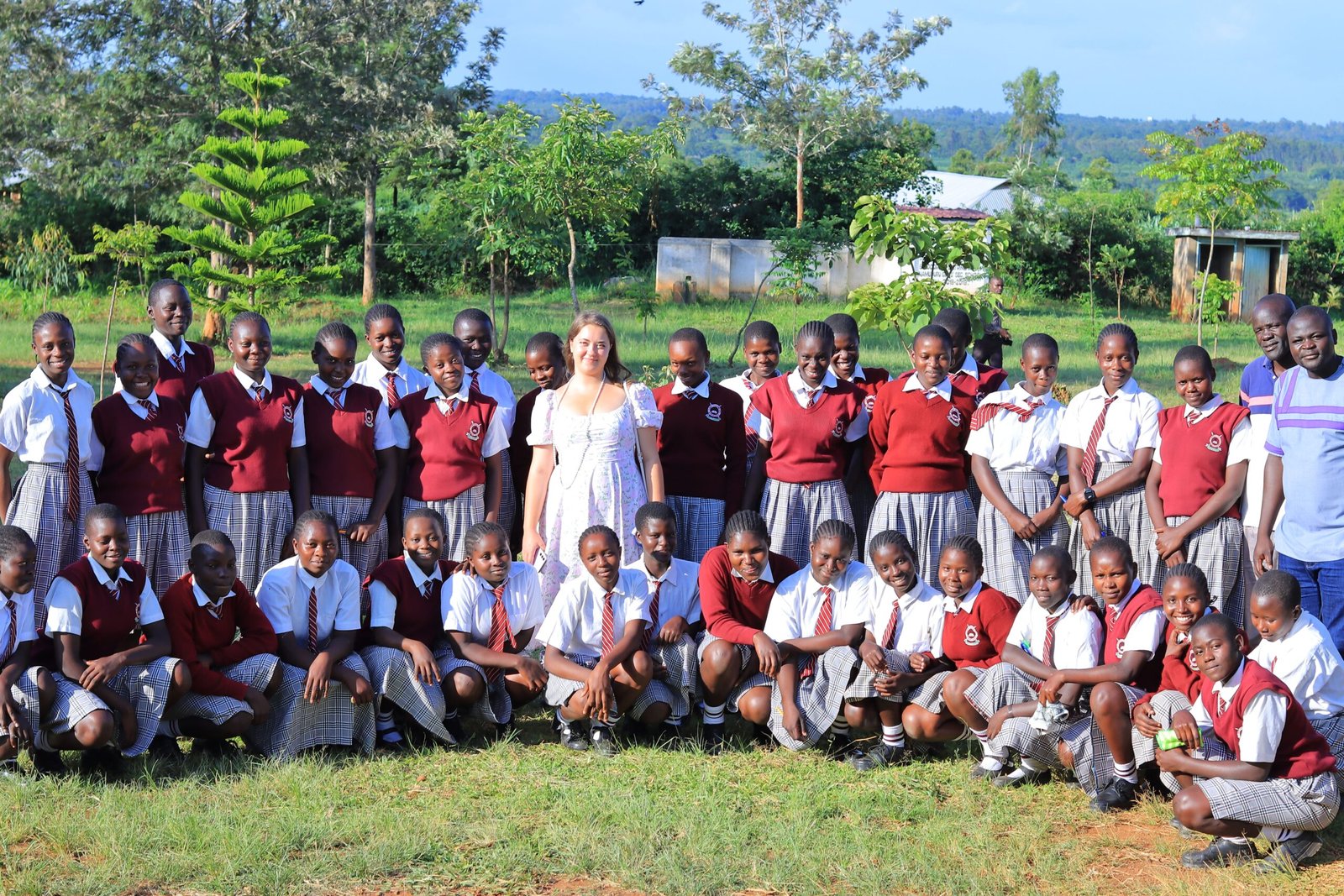May 15, 2025
Part of the Russia Cultural Workshops Series – Busia County, May 2025
About the School
Nestled in the Matayos Division of Busia County, a mere five-minute walk from the Ugandan border, stands Bishop Hannington Khuduru Primary School. Established in 2017 and proudly supported by the Anglican Church of Kenya (ACK) and local MP Geoffrey Odanga, this primary school currently serves 384 bright pupils. Despite its relatively young age, the school faces significant challenges, including a fundamental lack of proper classrooms, compelling students to learn within the confines of a church building. Headteacher Rose Kiunzu, along with her dedicated team of 13 teachers, works tirelessly to provide an education under these demanding circumstances.
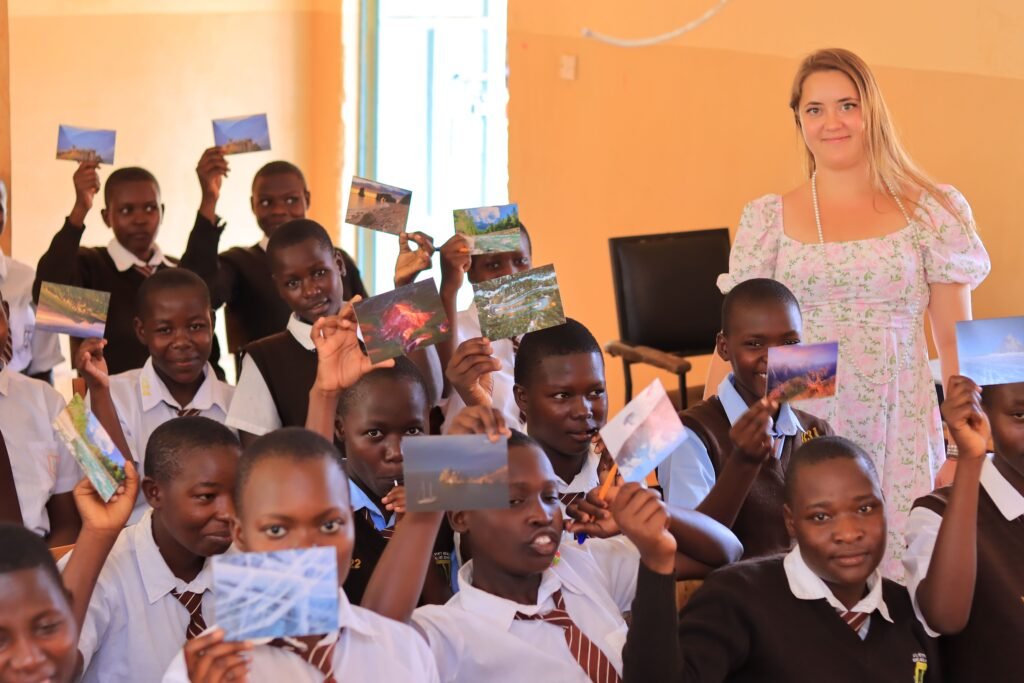
The school operates on a resilient spirit, but the absence of basic infrastructure like a borehole for water, a proper fence, an administrative block, and a structured library highlights the pressing need for support. Furthermore, without a feeding program, students often face the day on an empty stomach, impacting their focus and learning.
When We Visited – 15 May 2025
As part of our Russia Cultural Workshops initiative, our team visited Bishop Hannington Khuduru Primary School on the morning of May 15, 2025. The visit aimed to foster cultural exchange, assess the school’s needs, and identify areas where collaborative efforts could make a tangible difference. Despite the infrastructural hurdles, the energy and enthusiasm of the students and staff were palpable, creating a hopeful atmosphere.
Activities Conducted
Our engagement at Bishop Hannington Khuduru focused on cultural exploration and identifying long-term needs:
- Interactive Cultural Sessions: Students were introduced to Russian customs and culture through engaging discussions and a lively Q&A session. This allowed for a dynamic exchange of knowledge, sparking curiosity about global traditions.
- Needs Assessment Discussions: Meetings with the school staff centered on understanding their long-term infrastructural needs. These conversations were crucial for identifying specific areas where support could lead to lasting improvements.
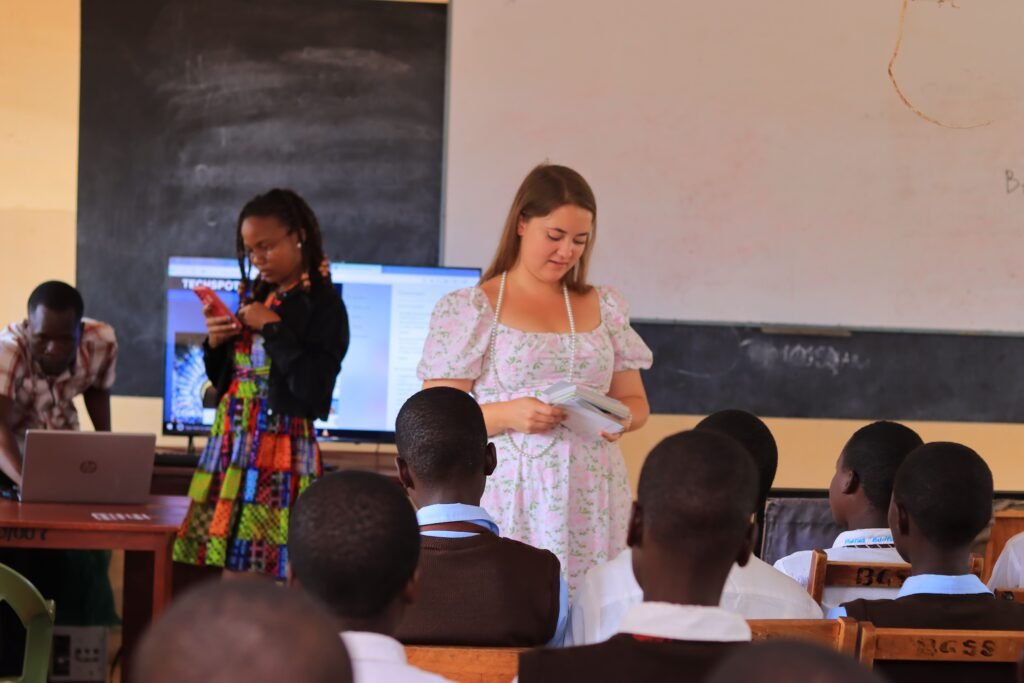
Challenges Observed
Our visit brought to light the critical challenges that Bishop Hannington Khuduru Primary School continues to grapple with:
- Lack of Classrooms: The most immediate challenge is the reliance on a church building for classes, underscoring an urgent need for permanent learning spaces.
- No Borehole or Water Source: Access to clean and reliable water remains a significant concern, affecting hygiene and daily operations.
- Absence of Library and Computer Facilities: The lack of a structured library and computer lab limits students’ access to essential learning resources and digital literacy skills.
- No Feeding Program: The absence of a student feeding program means many pupils learn while hungry, impacting their concentration and overall well-being.
- Uneven Playground: The current playground is uneven, making sports activities difficult and posing safety risks for the children.
- Lack of Printer: The school lacks a printer, hindering the efficient printing of exams and learning materials.
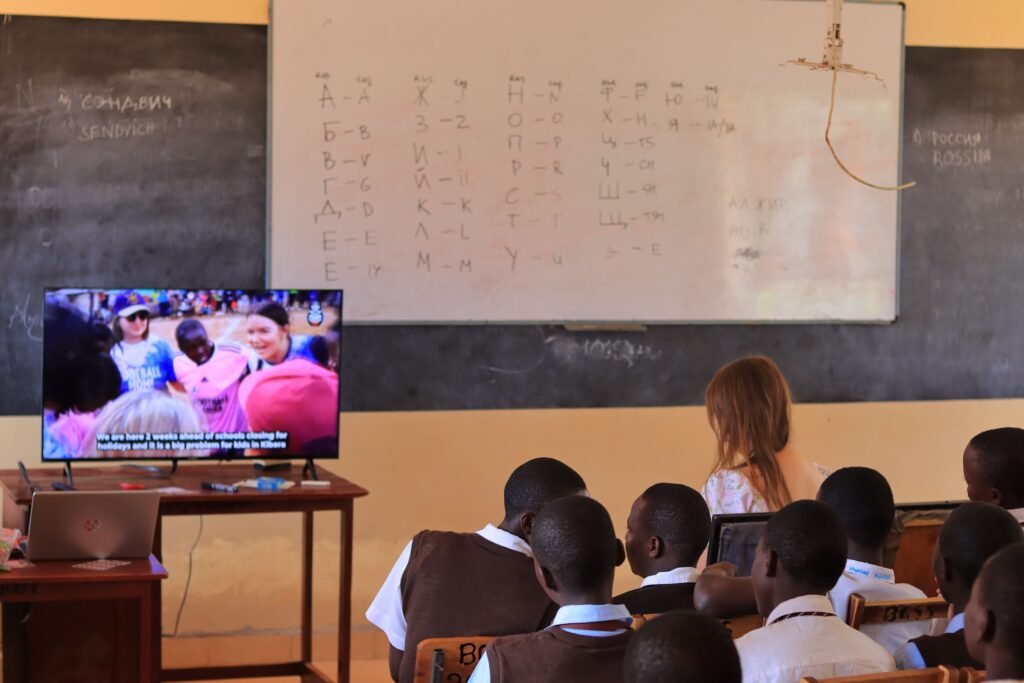
Why It Matters
Bishop Hannington Khuduru Primary School represents the heart of community education, where dedication thrives despite severe resource limitations. The “Path to Russia” initiative believes that every child deserves a conducive learning environment, and supporting this school means investing directly in the futures of these eager learners. Our engagement reinforces the idea that even the most basic improvements can unlock immense potential.
Looking Ahead
Our visit solidified our commitment to supporting Bishop Hannington Khuduru Primary School. Our development plans are focused on addressing their most pressing needs:
- Classroom Construction: Building permanent classrooms and administrative offices to provide a proper learning environment.
- Water Access: Drilling a borehole to ensure consistent access to clean water.
- Resource Development: Equipping a structured library and a functional computer lab with internet connectivity.
These steps are crucial for transforming the school into a fully equipped institution capable of offering comprehensive education and a brighter future for its students.


